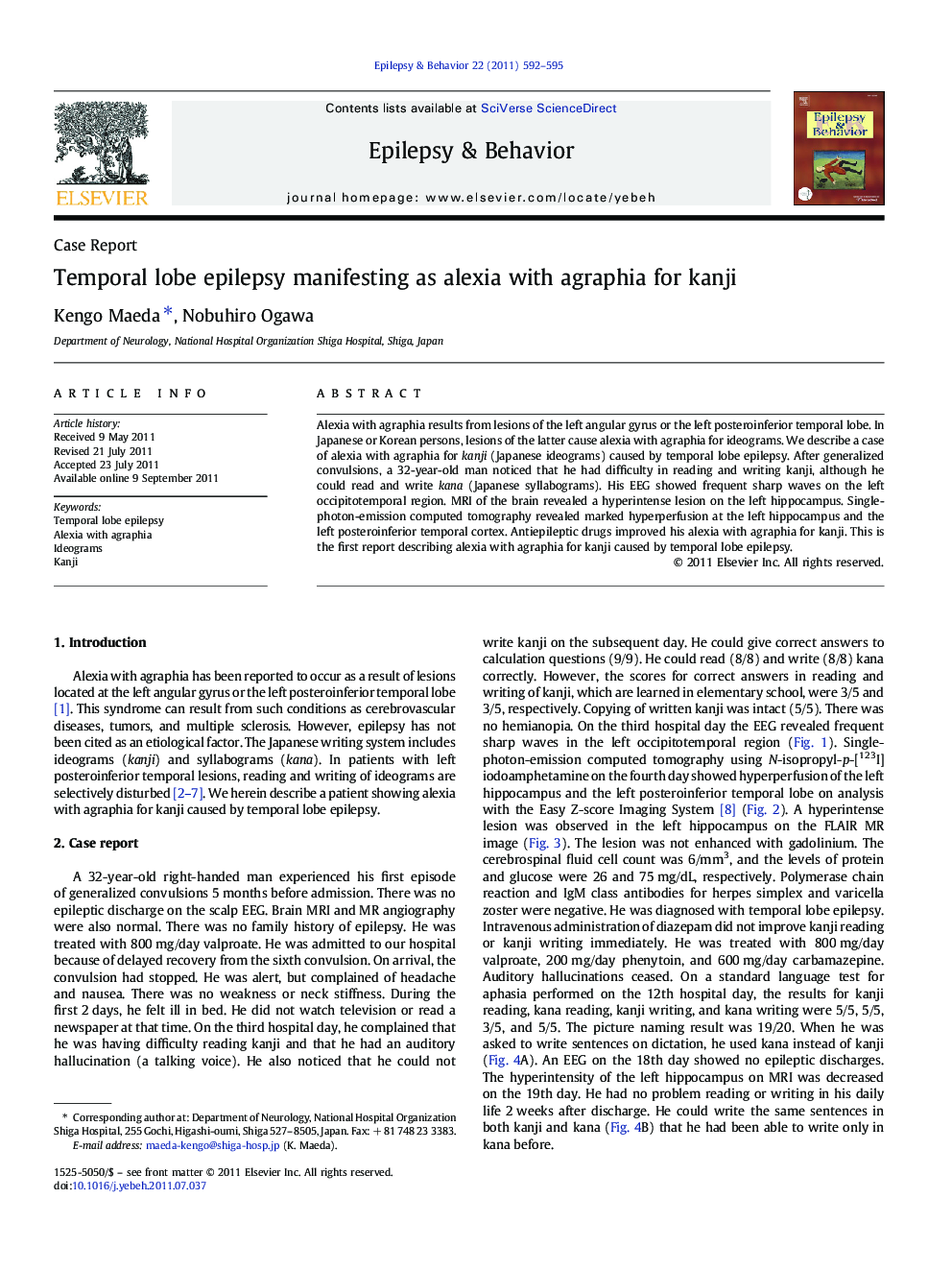| Article ID | Journal | Published Year | Pages | File Type |
|---|---|---|---|---|
| 6014472 | Epilepsy & Behavior | 2011 | 4 Pages |
Alexia with agraphia results from lesions of the left angular gyrus or the left posteroinferior temporal lobe. In Japanese or Korean persons, lesions of the latter cause alexia with agraphia for ideograms. We describe a case of alexia with agraphia for kanji (Japanese ideograms) caused by temporal lobe epilepsy. After generalized convulsions, a 32-year-old man noticed that he had difficulty in reading and writing kanji, although he could read and write kana (Japanese syllabograms). His EEG showed frequent sharp waves on the left occipitotemporal region. MRI of the brain revealed a hyperintense lesion on the left hippocampus. Single-photon-emission computed tomography revealed marked hyperperfusion at the left hippocampus and the left posteroinferior temporal cortex. Antiepileptic drugs improved his alexia with agraphia for kanji. This is the first report describing alexia with agraphia for kanji caused by temporal lobe epilepsy.
